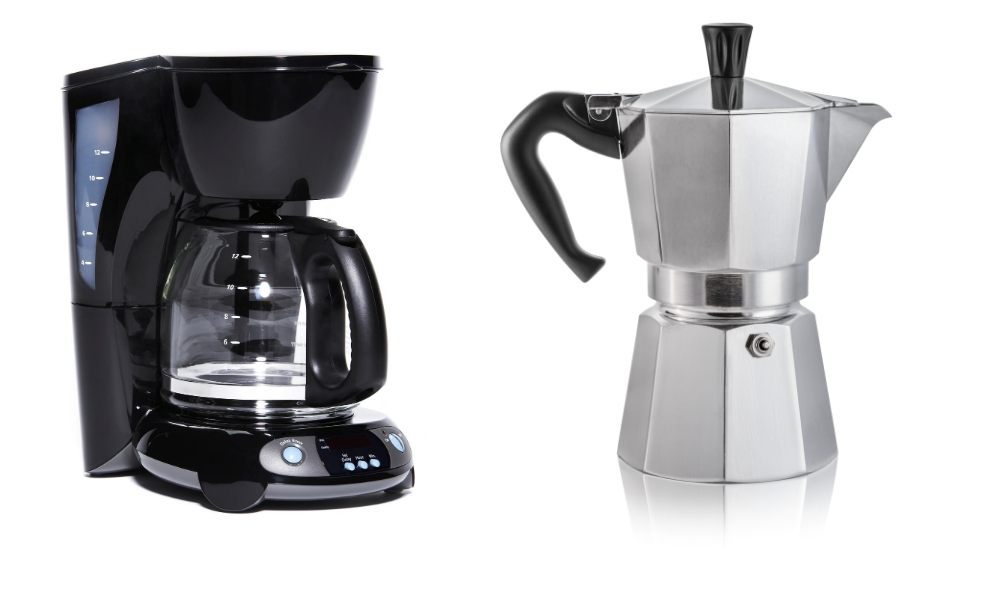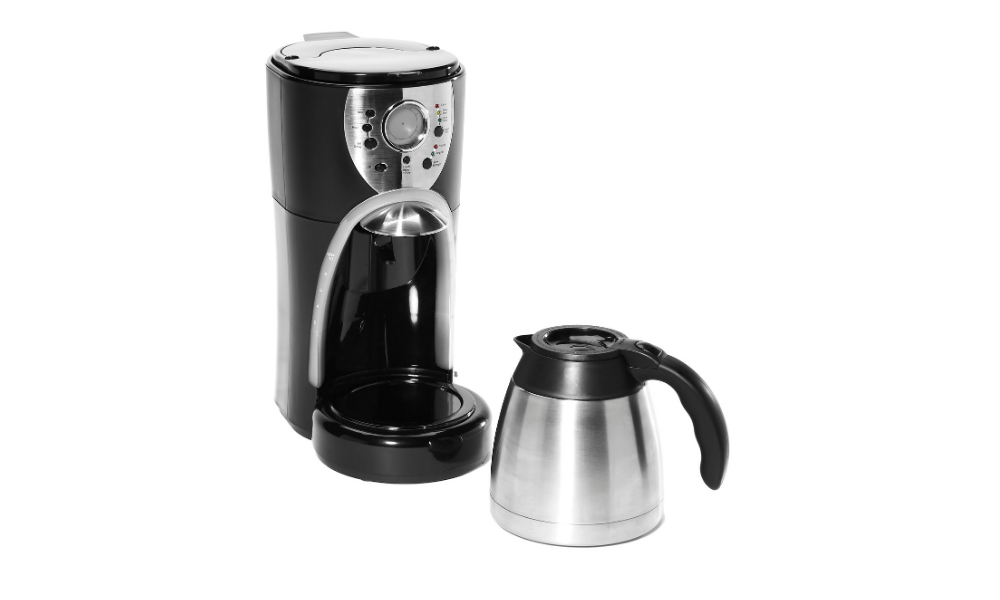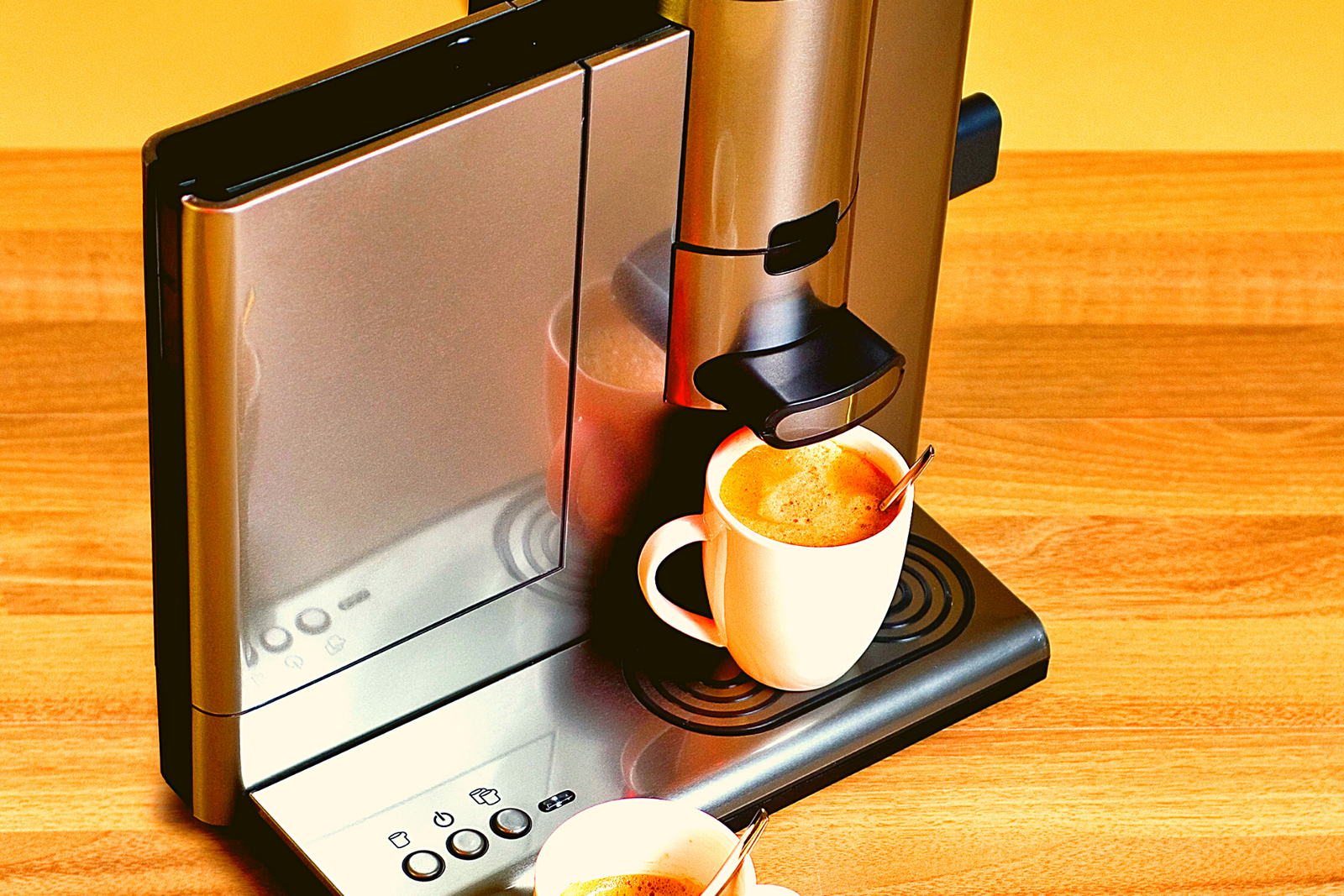Contents
For the folks who can’t live without caffeine in their blood, a reliable coffee maker is a must-have. And like any investments, you might be thinking, how long do coffee makers last?
This article will give you an idea of the average lifetime of coffee makers as well as a comprehensive guide on how to properly maintain your coffee to get it running for years. In addition, we will show you some tell-tale signs of when you need to replace your current coffee maker. Read Here: Top 10 Best Espresso Machines Under $300
Read More:
- Best Ground Coffees: All You Need To Know
- Best Coffee For Cold Brew
- Best Coffee On Amazon
- Best Bizzy Organic Coffee
- Best K Cup Coffees
- Best Coffee Liqueur
- Best Kona Coffees
- Best Dominican Coffees In 2023
- Best Cuban Coffees
- Best Dunkin Donuts Coffees
The Average Lifespan: How Long Do Coffee Makers Last?


Well, according to recent studies, the average lifetime of a coffee maker is 6 – 10 years, depending on the make and model, as well as your maintenance routine.
Standard drip filter coffee makers have an average lifespan of 6 years while the fully-automatic espresso machine outweighs the competition with its 10 years of life expectancy.
Obviously, the wear and tear will occur over time, causing the heating element to burn out, mostly in automatic coffee makers.
Manual coffee makers, on the other hand, can last a lifetime. That’s if properly cleaned and maintained. And while they can break due to your clumsiness, with manual coffee makers, there are no electronic parts to worry about.
Thus, unless a manual coffee maker like the French press, pour-over, or percolator is broken, then they should be good and allow you to make great-tasting coffee for a long time. In addition, because most manual coffee makers are made of metal, plastic, ceramic, or glass, they can last forever, unless damaged intentionally.
The only thing that you will need to change with manual coffee makers is changing the filter. And in the case of the French press coffee makers, the metal mesh filter that is located at the plunger’s end needs to be changed every 6 months. Fortunately, these filters are inexpensive and easily available.
Coffee Maker Lifespan By Brand
We know that coffee machines are not made equal. There are some brands that tend to do a better job with their coffee machines’ durability and lifespan than others. So, how long do coffee makers last by brand?
- Keurig Coffee Makers
The Keurig coffee machines should last for at least 3 – 5 years. Take note, that some Keurig coffee makers work only with specific types of k-cups or capsules. Thus, if the manufacturer stops producing those k-cups or capsules, the machine will become useless. Read Here: Top 10 Best Keurig Coffee Makers
- MR. Coffee
The coffee makers from Mr. Coffee should work just fine for about 2 – 3 years or for about 1,000 cups. However, with proper cleaning and regular descaling, Mr. Coffee coffee makers should last longer up to 4 – 5 years. Read Here: Top 10 Best Mr Coffee Espresso Machines
- Ninja
The coffee makers from Ninja are reported to have shorter life spans of a year or two. The most common issues that users report are leaked from the reservoirs and the incorrect cleaning cycles. Read Here: Top 10 Best Ninja Coffee Bar
- Cuisinart
Cuisinart coffee makers are said to last around 2 – 5 years. More importantly, Cuisinart offers at least 3 years of warranty to customers. See Pricing Here
- Black & Decker and Hamilton Beach
Both coffee makers from Black & Decker and Hamilton Beach should last for about 5 years and more if properly cleaned and maintained on a regular basis. See Pricing Here
Read More:
- Best Manual Coffee Grinders
- 10 Best Automatic Pour Over Coffee Maker
- Best French Press Coffee Makers
- Best 4 Cup Coffee Makers
- Best Electric Coffee Grinders
- Making Coffee Camping: The Ultimate Guide To Camp Coffee
- Best Keurig Coffee Makers
- Best Nespresso Espresso Machines
- 10 Best Under Cabinet Coffee Makers
- 10 Best Coffee Maker with Grinder Reviews
Reasons Why Automatic Coffee Makers Stop Working Before Average Lifespan
As mentioned before, the automatic coffee machines like single-serve coffee brewers or drip coffee machines can last anywhere between 6 and 10 years. However, machines can last only this long with regular cleaning and maintenance.
There are several explanations why an automatic coffee maker can stop working or malfunction, even before the 6-year mark. Here are some of the reasons:
1) Heating Element Or Electric System Burns Out
The electric system or heating element can’t be designed to last forever, since the material eventually wears out with time and use. And once the materials are worn out, the coffee maker simply stops heating water or even circulating water to brew. Surely, you don’t want cold coffee, unless you’re particularly craving for iced coffee, right?
2) Clogs
Coffee residues and mineral build-up clog up the tubes and pipes in coffee makers, creating irreversible damages. These buildups will cause the machine to overwork or stop working altogether when proper cleaning is not done. Thus, it’s extremely crucial that you perform deep and regular cleaning, according to the recommendations of the manufacturer.
3) Old and Obsolete
With the rapid advancements of technology, new upgraded models make your current coffee maker look old and obsolete. And some people just prefer having new upgrades coffee machines with all the fancy features.
Ways To Extend Your Coffee Maker’s Lifespan


Knowing how long do coffee makers last will give you a general idea of how long you get to use your investment. But it is usually up to you, as the user, on how you can maximize the lifespan of your coffee maker.
There are several ways to extend your coffee maker’s lifespan, and most of them are just simple basic maintenance.
- Cleaning
Cleaning is the most important thing you can do to ensure that your coffee maker can last for years, Dust, nasty bacteria, coffee gunk can easily build up in your coffee maker which can cause problems like mold, mineral deposits, blockages, and overheating.
Unsurprisingly, if you are not doing a deep clean or descaling at least once a month, then your machine is not going to last for long. Read Here: How to Clean a Keurig Coffee Maker Using Vinegar
So, the first step to a long-lasting coffee machine? Cleaning. Make sure that you read the cleaning instructions for your coffee maker to learn the best way to go about it.
- Switching It Off
This is another factor that affects the answer to how long do coffee makers last.
If you are regularly leaving your coffee maker on all day, then it is not just energy that you are wasting. The continual electricity flow can be damaging to the mechanics of your machine and wear them out faster.
Everyone is guilty of doing it, particularly when you’re chugging in the last-minute coffee before darting out of your home.
Fortunately, most new coffee machines will include the automatic shut-down feature that stops this issue. However, if you have the older models, then you need to always remember about the off switch.
- Avoid The Oily Beans
Although coffee beans may not feel or look oily when popping them in your coffee maker, all coffee beans will have some level of oils within them.
In general, the darker the beans, the oilier they will be. Plus, they also have a shinier and richer coating than the lighter and drier coffee beans.
When roasted, this oiliness rises to the surface. For some espresso machines, this can actually wreak havoc in the internal systems.
The excess oil residue can become gummy and sticky over time, causing damage to common machine components like the brew unit and bean hopper.
In order to avoid such issues, you will need to take a closer look at the oiliness and roast type of coffee beans.
- Using The Wrong Grind
Different coffee makers require different grinds. And if you are regularly using the wrong ones, then you are going to do some big damages.
Using the wrong grind not only ruins the coffee flavor but you are also forcing a large, chunky mixture into the coffee machine when it is designed for the finer grinds, so it will struggle to perform at the optimum level.
So, make sure that you look into the optimum grind suitable for your coffee maker. Read Here: Top 10 Best Electric Coffee Grinders
- Put Enough Water In The Tank
Your coffee maker might be smart and automated; however, some are just brighter than the others. And they simply can’t always tell how much water they have got in the tank left.
Now, if your machine is dehydrated and you still push its button, it will try and pump the tank for a preset amount of time. However, with not enough water, the pump will draw air into the system, instead and creating air pressure inside the mechanics.
And if you unknowingly do this every time, then it is only a matter of time before you are going to run into some problems.
- No To Capsule Cramming
We have all done it. You spend too much on a pack of coffee capsules, and you try to pop them in the machine when they don’t even fit.
Fight this temptation.
If it does not fit, then it is not compatible. Too many people already broke their machines by using the wrong sized pods on their coffee maker.
Would you rather waste a $20 on a pack of capsules or a hundred dollars when you suddenly need a new coffee maker?
Read More:
- Best Manual Coffee Grinders
- 10 Best Automatic Pour Over Coffee Maker
- Best French Press Coffee Makers
- Best 4 Cup Coffee Makers
- Best Electric Coffee Grinders
- Making Coffee Camping: The Ultimate Guide To Camp Coffee
- Best Keurig Coffee Makers
- Best Nespresso Espresso Machines
- 10 Best Under Cabinet Coffee Makers
- 10 Best Coffee Maker with Grinder Reviews
Signs You Need To Upgrade You Current Coffee Maker
When you think you have likely gotten some life out of your reliable coffee maker, then perhaps it is time that you need to upgrade.
But when is the perfect time to part ways with your coffee making partner and make way for an exciting new coffee maker in your life?
Here are some tell-tale signs you need to get a new coffee maker:


- It Is Broken
If your coffee maker is noticeably malfunctioning or struggling over the most basic tasks, then it may be time to get a new one.
Everyone has been guilty of hanging onto a broken or malfunctioning appliance for a little too long. However, you do not need to be a virtuoso to realize these problems will only get worse in no time.
Cracks become crevices, leaks become floods and pumps dry up faster. Sooner or later, you won’t be satisfied with the flavors of your coffee.
And unless your coffee maker is incredibly expensive or still in warranty, then it is probably not worth having it repaired. In fact, coffee maker repairs can cost hundreds of dollars, depending on the make and model. So, you might just want to use the money to buy a new one.
- Your Coffee Is Colder
Iced coffee is popular these days. However, if your coffee maker cannot serve the standard hot coffee anymore, then does it have any good?
AS mentioned before, the heating element of your coffee maker eventually wears out over time and you can start to spot this early if your machine is churning out weak and under-extracted brews with a sour taste.
- Outdated
Now, if your rigorous maintenance and cleaning have helped your coffee maker survive a whole decade, then congratulations.
Although extending the lifespan of your coffee maker is important, at some point, you’ll be lured with the newer and more advanced coffee makers out there.
If your coffee maker does not make the cut when your Grandma starts asking for a Cortado and Macchiato, then you will know that it is time to make a change.
- Pod Problems
The advent of the pod machine has seen people ditching coffee beans for the convenience of pods and capsules.
However, if you have had your pod machine for a long tie, then you might find that getting the right capsules or pods for your coffee maker can be more and more difficult.
Brands and manufacturers continue on innovating and discontinues the less popular items to make way for the newer ones. So, in just a blink of an eye, you might be unable to buy your favorite selections.
Read More:
- Best Ground Coffees: All You Need To Know
- Best Coffee For Cold Brew
- Best Coffee On Amazon
- Best Bizzy Organic Coffee
- Best K Cup Coffees
- Best Coffee Liqueur
- Best Kona Coffees
- Best Dominican Coffees In 2023
- Best Cuban Coffees
- Best Dunkin Donuts Coffees
Final Thoughts
So, there you have it! By now, you should have a general idea of how long do coffee makers last. And while it depends on several factors like proper cleaning and maintaining, some coffee makers last longer or shorter than others.
We hope you find this article helpful. Got any questions or suggestions? Any tips on how to extend the lifespan of coffee makers? Feel free to fire up the comment section below! And please don’t forget to share this article with your family and friends.
Until then, happy brewing!

















